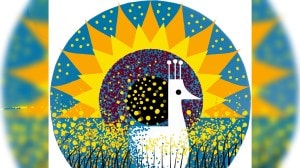Cloning: No monkey business this for sure
WASHINGTON, JAN 30: Prospects of cloning humans became dimmer when scientists in the United States failed to clone a monkey successfully ...

WASHINGTON, JAN 30: Prospects of cloning humans became dimmer when scientists in the United States failed to clone a monkey successfully despite trying 135 times, reports said here.
The failure was reported yesterday to the Advisory Council of the National Institute of Research Resources in Bethesda (Maryland) by Don Wolf, who is leading the monkey-cloning effort at the Oregon Regional Primate Research Centre in Beaverton.
“Clearly, it is not easy in monkeys, so it is not going to be easy for humans either,” Wolf said about his experiments. Some scientists, however, told the Council that they were reluctant to extrapolate from the monkey work any firm conclusion about the feasibility of eventually cloning human beings.
It had been assumed that, before trying to clone humans, one should try to clone monkeys. The ethics of cloning humans are still under debate. There is no similar objection to cloning animals, including monkeys.
The cloning of mammals was pioneered by scientist Ian Wilmut in Scotland,who cloned Dolly the sheep in 1997. Wilmut said last week that he is now turning his attention to the artificial reproduction of human embryos.Using similar techniques Wolf and his team took a single cell from a donor monkey and fused monkey egg cell, whose own genetic material had been removed.
In the Oregan experiments, 75 per cent of the eggs fused with donor cells and 75 per cent of those began to divide. But the 135 embryos transferred into 23 female monkeys did not result in pregnancy.
In normal monkey artificial insemination about one quarter of embryos grow into a baby. In an interview on BBC television on January 20, Wilmut said that he hoped to begin preliminary experiments within days using embryos at a very early stage of development, which would be killed before they reached the foetus stage.






- 01
- 02
- 03
- 04
- 05

























